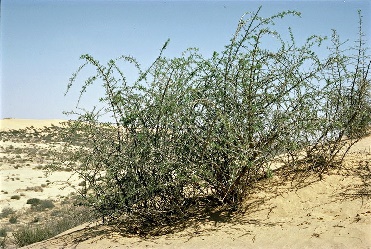Shoftim Chapter 9 - The Parable of the Thornbush

This chapter, with its famous parable of the thornbush, is often cited as a strong biblical critique of monarchy. The story of Avimelekh, who schemes and murders to fight his way to power, presents a model of terrible kingship: a person hungry for power who, instead of defending his people from external threats, kills them himself. The parable of the thornbush portrays monarchs as people with no positive pursuits who are chosen last. Those who can contribute positively to the world choose to do so, and only the thornbush, which bears no fruit, is willing to accept the task.
Professor Rosenson, in his book "שפוט השופטים", highlights a slightly more complex perspective. The choice of the olive tree, fig tree, and vine not to "go waving over the trees" allows them to focus on their individual growth, but it also has national implications. Monarchy cannot exist without sacrifices. To rule over all Israel means to engage with others' needs, which entails that one cannot fully be invested in his own family and personal interests (as we see with David, who relocated to Hevron and later to Jerusalem). When good people are unwilling to pay this price and remain within their own private domains, a vacuum forms that allows thornbushes to rise.
In a lecture from Herzog’s Yemei Iyun B’Tanakh, Elie Assis argues that the parable of the thornbush does not express opposition to monarchy in general, but specifically opposition to Avimelekh's rule. When a leader prioritizes personal gain over the welfare of the people, the end will be bitter, whether that leader is a judge, a king, or a modern member of parliament. If the criticism here is not against monarchy as a whole but against an illegitimate kind of monarchy, one that is full of murders and internal strife, where the king doesn’t think of his people - how can one choose between the two? How can a monarchy be established where the king always thinks of his people, and how can a monarchy be created where the fire does not come from the thornbush and consume the cedars of Lebanon?
You can find Professor Assis's lecture here.


This website is constantly being improved. We would appreciate hearing from you. Questions and comments on the classes are welcome, as is help in tagging, categorizing, and creating brief summaries of the classes. Thank you for being part of the Torat Har Etzion community!